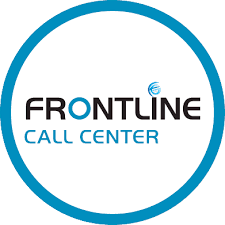2022 Year-End Tax Planning for Businesses
U.S. businesses are facing pressure to drive revenue, manage costs and increase shareholder value, all while surrounded by economic and political uncertainties. Disruptions to supply chains brought about by the pandemic have continued into 2022. Inflation and rising interest rates have made the cost of debt, goods and services more expensive and cooled consumer spending. The stock market has declined sharply, and the prospect of a recession is on the rise. What’s more, the outcomes of the November U.S. congressional elections will shape future tax policies. How do businesses thrive in uncertain times? By turning toward opportunity, which includes proactive tax planning. Tax planning is essential for U.S. businesses looking for ways to optimize cash flow while minimizing their total tax liability over the long term.
This article provides a checklist of areas where, with proper planning, businesses may be able to reduce or defer taxes over time. Unless otherwise noted, the information contained in this article is based on enacted tax laws and policies as of the publication date and is subject to change based on future legislative or tax policy changes.
Planning Tips
- Review your balance sheet to ensure that you have reconciled assets and liabilities to supporting documentation and have recorded all entries for year. Compare your 2022 profit and loss to 2021 to ensure that you have consistently recorded your income and expenses. You will also be able to easily identify fluctuations in accounts.
- Have you reviewed the nexus rules in every state in which you have property, employees (including remote) or sales to determine whether there is a tax obligation?
- Consider the timing of asset sales and how taxable income will be affected. Purchasing qualifying property and equipment before the end of 2022 to take advantage of the 100% bonus depreciation provisions (before bonus depreciation begins to gradually phase out starting in 2023) and the Section 179 expensing rules.
- Consider changes of many of the current energy-related tax credits. There are several federal tax benefits available for investments to promote energy efficiency and sustainability initiatives.
- Review quarterly estimated tax payments for owners of flow-through entities to determine if an adjustment should be made to the 4th quarter tax payment.
New for 2022
- Business-related vehicle expenses can be deducted using the mileage-rate method (58.5 cents per mile driven from January 1 to June 30, 2022, and 62.5 cents per mile from July 1 to December 31, 2022).
- Business-related meal expenses, including those incurred while traveling on business, have remained 50% deductible. However, the deduction of 100% for food and beverages provided by a restaurant remains in effect through 2022.
- Effective 1/1/2023, employers must disclose in each posting for each job opening the wage scale or salary range, and a general description of all the benefits and other compensation to be offered to the hired applicant. This mean that all communications intended to recruit job applicants made directly or by a third party must disclose compensation. RCW 49.58.110
- Washington state increases the threshold for exempt level employee to $65,484 effective 1/1/2023. All employees below this annual FTE threshold ($31.48/hr) will be eligible for over-time pay. These changes are part of The Washington State Minimum Wage Act.
Filing Deadlines
- The filing deadline for all federal W-2s is January 31st. This is for both employee and agency copies, and whether filing paper or electronic returns.
- Forms 1097, 1098, 1099 (except a Form 1099-NEC reporting nonemployee compensation), 3921, 3922 or W-2G have a filing due date of February 28, 2023 or if filing electronically, have an extended filing due date with the IRS of March 31, 2023. However, the due date for giving the recipient these forms generally remains January 31st.
- January 31, 2023 – Deadline to supply each 1099 vendor (to whom you paid $600 or more) with a completed Form 1099-MISC, or Form 1099-NEC. The penalty for failing to file Form 1099s when required could be as much as $550 per statement.
- Before paying a new vendor, request they complete a Form W-9 (if they are a U.S. business performing services in the U.S.). If you pay a vendor outside the
U. S., you may need to request a W-8 series Form.
- Before paying a new vendor, request they complete a Form W-9 (if they are a U.S. business performing services in the U.S.). If you pay a vendor outside the
Expenses and Deductions
Planning for income, expenses, asset acquisition and depreciation can help reduce your business tax burden.
- Qualified Business Income (QBI) Deduction: For tax years 2018 – 2025, individuals, estates and trusts may deduct up to 20% of their qualified business income from sole proprietorships (including farms) and pass-through entities. Limitations apply based on the type of business, wages, and assets in the business and other factors.
- S-corporation owners need to ensure their salaries meet the reasonable compensation requirements. Not having a reasonable salary in place can affect the QBI deduction.
- Review asset additions: Assets which will be used within a year or are under
$2,500 for each item (if you have a capitalization policy in place stating this), can be expensed and do not need to be recorded under fixed assets. This will save time reclassifying assets for tax return preparation and avoid unnecessarily tracking assets year to year. - Disposition of assets: Losses related to worthless, damaged or abandoned property can sometimes generate ordinary losses for specific assets.
- Section 179 qualified real property: §179 qualified real property is qualified improvement property plus roofs, heating, ventilation and air conditioning property, fire protection, and alarm and security systems. These items now qualify for §179 expensing if all conditions are met. The maximum amount you can elect to deduct for most §179 property you placed in service in the tax year 2022 is
$1,080,000. This limit is reduced by the amount by which the cost of §179 property placed in service during the tax year exceeds $2,700,000 for 2022. - Businesses can either: 1) depreciate company vehicles and claim actual vehicle expenses such as gas, repairs, & maintenance or 2) claim the standard mileage rate.
- Ensure a reimbursement policy is in place and reimbursements are being made timely.
- If you have sales or are performing services outside your home state, consider if the sales can be a deduction on your Washington State B&O return. Also, consider if you have income tax or sales tax nexus in the states you are selling to and/or performing services in. Each state has different rules and needs to be reviewed separately.
- If you use any portion of your home for business use, you may be eligible to deduct apportioned expenses.
- Small business employers with 25 or fewer full-time employees may qualify for the Small Business Health Care Tax Credit to help pay for employees’ health insurance.
- The Work Opportunity Tax Credit is available for employers who hire certain targeted groups and is generally equal to 40 percent of the first $6,000 of wages paid to a new hire. The Consolidated Appropriations Act, 2021 authorized the extension of the WOTC until December 31, 2025.
- Under the 2017 Tax Cuts and Jobs Act (TCJA), research and experimental (R&E) expenditures incurred or paid for tax years beginning after December 31, 2021 will no longer be immediately deductible for tax purposes. Instead, businesses are required to capitalize and amortize R&E expenditures over a period of five or 15 years beginning in 2022. The mandatory capitalization rules also apply to software development costs, including software developed for internal use. The new rules present additional considerations for businesses that invest in R&E.
Please see our online tax planning guide, and please contact your VSH tax advisor to discuss further.



